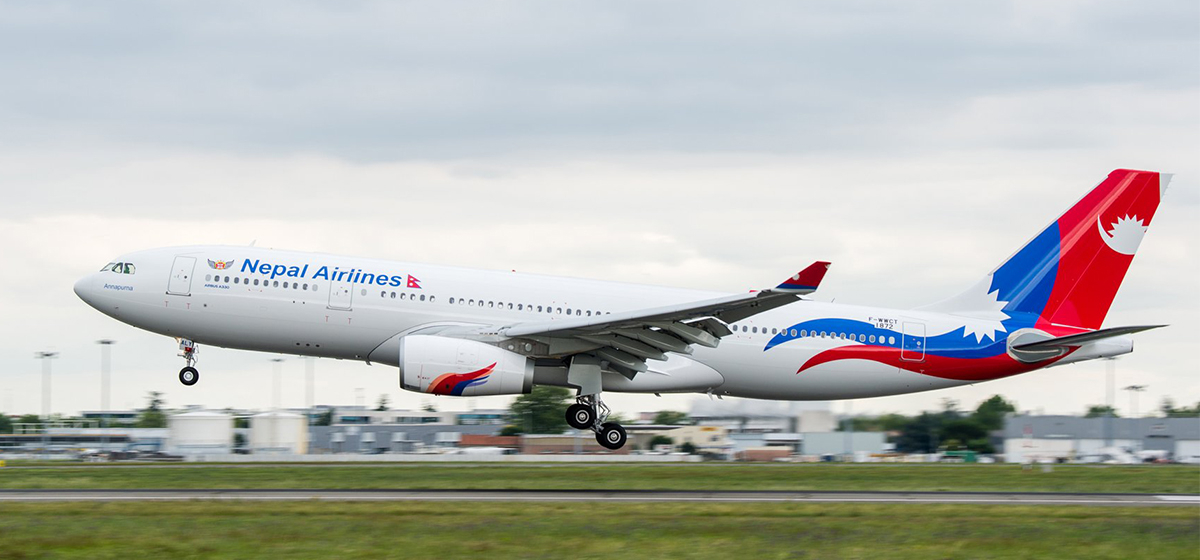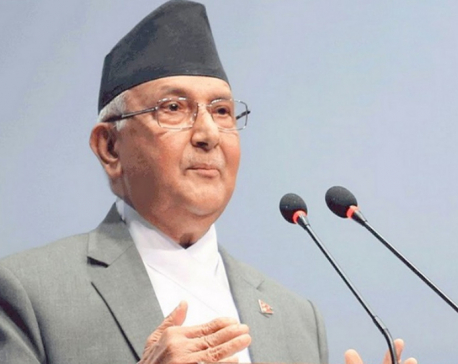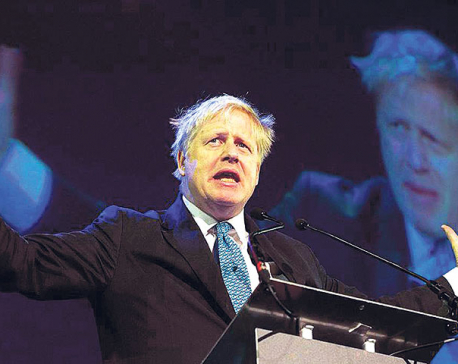
OR
#Editorial
Take concrete measures to remove Nepali airlines from EU's blacklist
Published On: December 1, 2023 07:31 AM NPT By: Republica | @RepublicaNepal

In a disheartening revelation, the European Union (EU) has decided to continue with its ban on Nepali airlines, restricting them to fly over EU's sky. This disappointing news comes despite the optimistic claims made by high-level government officials assuring the public that the ban was on the brink of being lifted. The repercussions of the EU's decision are not merely confined to the aviation sector but extend their ominous reach into the heart of Nepal's economy and tarnish its international standing. The Department for Mobility and Transport of the EU, in its latest report on the air safety list, has maintained the blacklisting of 20 Nepali airlines, encompassing both private carriers and helicopter companies, as well as the state-owned Nepal Airlines Corporation (NAC). The EU's rationale for this unyielding stance lies in the failure of Nepali airlines, constituting a substantial proportion of the 129 airlines under consideration, to meet the rigorous international safety standards.
The EU report underscores that the decision to uphold the ban is rooted in persisting safety concerns identified during an assessment visit conducted from September 11 to 15. Although the Civil Aviation Authority of Nepal's (CAAN) proactive engagement and ongoing efforts to bolster safety oversight were acknowledged during the EU Air Safety Committee meeting, they evidently fell short of the stringent standards set by the EU. The Minister for Culture, Tourism, and Civil Aviation, Sudan Kirati, had confidently proclaimed in a public program just last month that Nepali airlines would soon be removed from the EU ban. However, the EU's steadfast stance reveals that such improvements, while commendable, were insufficient to bridge the gaping divide between Nepal's aviation standards and the global benchmarks set by the EU. One of the EU's persistent demands has been the bifurcation of Nepal's civil aviation body into distinct entities serving as a service provider and regulator, an essential precondition for the removal of the ban. Despite repeated calls from the EU, the government has failed to enact the necessary legislation and establish the required functional bodies to comply with this fundamental requirement.
Nepal's aviation woes on the EU blacklist are not a recent development; the country's airlines have been subject to this ignominy since 2013, primarily due to significant aviation security concerns. While the International Civil Aviation Organization (ICAO) removed Nepal from its list of Serious Security Concerns (SSC) in July 2017, the EU has continued to harbor reservations about the country's adherence to global safety standards. The consequences of this protracted blacklisting are severe, transcending the boundaries of the aviation sector. The economic ramifications are palpable, as the tourism industry, a vital component of Nepal's economy, is inevitably hampered. Potential tourists may be dissuaded from choosing Nepal as their destination, citing concerns over the safety of air travel within the country. As we mark the one-year anniversary of this ongoing struggle, it is imperative for the government to reflect on its approach and intensify efforts to meet the stringent standards set by the EU. The imperative is not merely to salvage the aviation industry but to safeguard lives, instill confidence in potential visitors, and uphold Nepal's international reputation. The sky may be limitless, but Nepal's aspirations must not remain grounded on the EU's blacklist.
You May Like This

PM Oli urges European Union to lift ban on Nepali airline companies (with video)
KATHMANDU, Aug 19: Prime Minister KP Sharma Oli has urged the European Union to lift a ban on Nepali airline... Read More...

PM Johnson calls on Germany and France to compromise on Brexit
LONDON, Aug 19: Prime Minister Boris Johnson on Monday called on Germany and France to compromise on Brexit, cautioning that... Read More...

EU leaders to agree grudging Brexit delay at summit
European leaders were expected to postpone Brexit once again on Wednesday, when Prime Minister Theresa May attends another last-ditch summit... Read More...





Just In
- NRB introduces cautiously flexible measures to address ongoing slowdown in various economic sectors
- Forced Covid-19 cremations: is it too late for redemption?
- NRB to provide collateral-free loans to foreign employment seekers
- NEB to publish Grade 12 results next week
- Body handover begins; Relatives remain dissatisfied with insurance, compensation amount
- NC defers its plan to join Koshi govt
- NRB to review microfinance loan interest rate
- 134 dead in floods and landslides since onset of monsoon this year












Leave A Comment